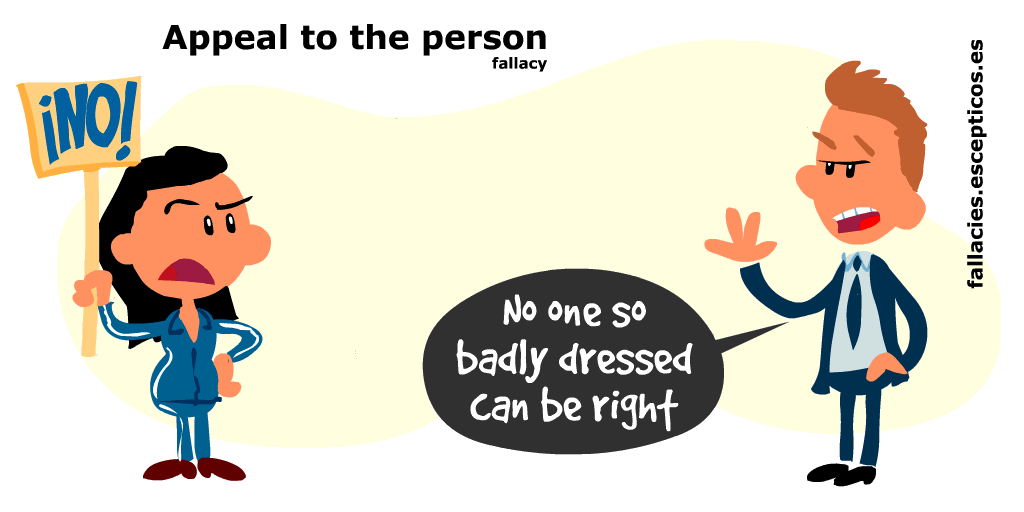Since I have no arguments I’ll take it out on you, let’s see if that way…

It is the person who presents the argument who is attacked, instead of the argument itself. This can take many forms. For instance, the attack may address the person’s nationality, religion or character, or their acquaintances. Also, the attack could rely on showing what is at stake for the person making the claim.
Examples
You say God doesn’t exist, but you only say that to be trendy (abusive ad hominem).
We must reject what the Premier Klein says about the new taxes, since he won’t be affected by their rise (circumstantial ad hominem).
We can’t accept the arguments of Share. B.C., since they are funded by the lumber industry (circumstantial ad hominem).
You say I shouldn’t drink, but you haven’t been sober a single day in more than a year (ad hominem tu quoque).
To refute it
Identify the attack and prove that neither personality nor personal circumstances have anything to do with the truth or falsehood of the defended proposition.
Whenever the source is not referenced, both definitions and examples have been extracted from a translation of Jaime Wilson jwilson@bytecr.com based on Stephen’s Guide to the Logical Fallacies. Copyright 1995-1998 Stephen Downes. Brandon, Manitoba, Canada.
These texts have been modified by Miguel A. Lerma and now by us to adapt them -and those taken from Wikipedia- to our format.